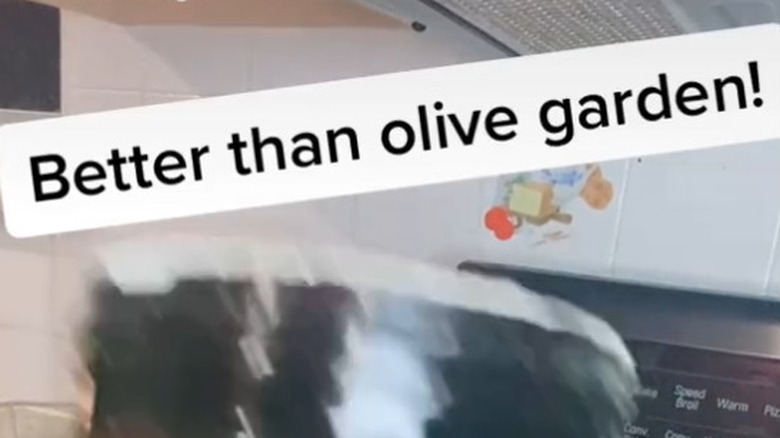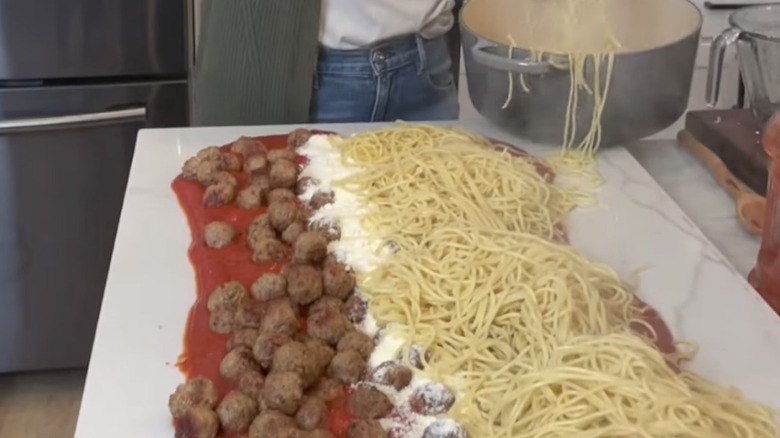We Finally Know Where All Those Gross Food 'Hacks' Come From
The internet fills itself with inane sounding food hacks all the time. In recent months, however, many have turned from potentially helpful tips to videos that blur the line between sincerity and trolling. For example, there's the "Better than Olive Garden" sauce on TikTok that, among other things, plops in blocks of cream cheese, two packets of parmesan cheese, and random amounts of chicken bullion.
These excessively janky recipes piqued the interest of Ryan Broderick, who wrote about them in a piece published by Eater. What they discovered was that on Facebook, these videos belong to a network of accounts operated by the magician Rick Lax and his friends. Lax has been uploading content onto Facebook since 2015, expanding since then to become one of the most prolific viral creators on the platform under the moniker "Rick Lax Productions." One affiliated creator, Getti Kehayova, explained to Broderick that their video of a Nerds spaghetti burger, which Lax later shared, was not meant as an instructional "hack" video. "It's nothing that people should do," the magician revealed. "We're entertainers. We're just trying to put smiles on your faces."
So we know who makes these videos, but that doesn't explain the reason people watch them. Broderick suggests it could represent an American version of mukbang, the Korean eating videos in which people detect a fetishistic undertone. Broderick and the Daily Beast note how nearly all these videos feature white, suburban women slathering monstrosities in big houses. In other words, the American dream.
Why are these videos so popular?
Setting aside the American dream aspect, the strange videos of food being prepared in unappetizing ways is also a natural outgrowth of our digital food media. Wondering about the proliferation in The Atlantic, Amanda Mull traces a connection between these videos and those produced by Tasty, Buzzfeed's recipe video tutorials. Those videos from 2015 established the basic, algorithm-friendly aesthetics of the cooking video, which later developed into serious food hack videos, which in turn became big enough to warrant fake hack videos or purposefully disgusting food videos.
Once a visual language becomes codified, others will purposefully repurpose it to bizarre ends. "You take something that's familiar, but then you put just enough of a twist on it to subvert expectations," Alexandra Plakias, a philosophy professor at Hamilton College, suggested to Mull. In other words, instead of trying to outdo Olive Garden, you communicate a visual heart attack by dropping dollops of cream cheese into a saucepan.

